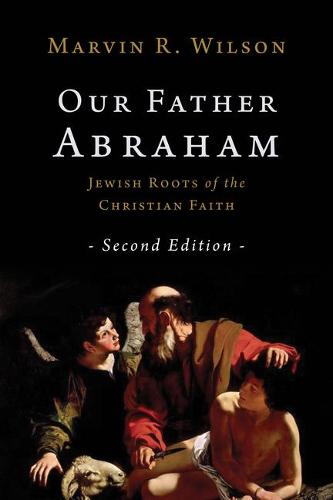
Although the roots of Christianity run deep into Hebrew soil, many Christians remain regrettably uninformed about the rich Jewish heritage of the church. Our Father Abraham delineates the vital link between Judaism and Christianity, exemplified by the common ancestry of the two faiths traceable back to Abraham. Marvin Wilson calls Christians to reexamine their Semitic heritage to regain a more authentically biblical understanding of what they believe and practice.
Wilson, a trusted voice among both Jews and Christians, speaks to both past and present, first developing a historical perspective on the Jewish origins of the church and then discussing how the church can become more attuned to the Hebraic mindset of Scripture. Drawing from his own extensive experience, he also offers valuable practical guidance for salutary interaction between Christians and Jews. Discussion questions at the end of each chapter make this book especially suitable for use in groups--Christian, Jewish, or interfaith--as readers strive to make sense of their own faith in connection with the other.
The second edition of Our Father Abraham features a new preface, an expanded bibliography of recent relevant works, and two new chapters: one that discusses Jewish-Christian relations after the Holocaust and another that reflects on Wilson's own fifty-plus-year career as an evangelical Christian deeply committed to interfaith dialogue. As Christians and Jews feel a growing need for mutual support in an increasingly secular Western world, Wilson's widely acclaimed book will offer encouragement and wise guidance toward this worthy end.
Wilson, a trusted voice among both Jews and Christians, speaks to both past and present, first developing a historical perspective on the Jewish origins of the church and then discussing how the church can become more attuned to the Hebraic mindset of Scripture. Drawing from his own extensive experience, he also offers valuable practical guidance for salutary interaction between Christians and Jews. Discussion questions at the end of each chapter make this book especially suitable for use in groups--Christian, Jewish, or interfaith--as readers strive to make sense of their own faith in connection with the other.
The second edition of Our Father Abraham features a new preface, an expanded bibliography of recent relevant works, and two new chapters: one that discusses Jewish-Christian relations after the Holocaust and another that reflects on Wilson's own fifty-plus-year career as an evangelical Christian deeply committed to interfaith dialogue. As Christians and Jews feel a growing need for mutual support in an increasingly secular Western world, Wilson's widely acclaimed book will offer encouragement and wise guidance toward this worthy end.



